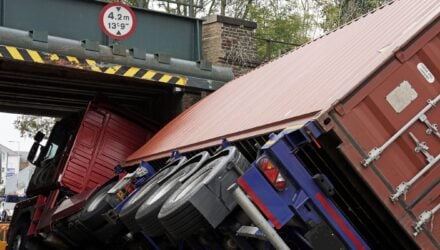In a landmark move towards sustainable transportation, Innovate UK has unveiled a £200 million initiative to establish 54 HGV charging hubs across the United Kingdom. This strategic development is poised to significantly accelerate the adoption of zero-emission freight solutions nationwide.
Launched during the recent ZEHID programme summit in London, this initiative aims to deploy hundreds of zero-emission HGVs alongside the new infrastructure. The hubs will be strategically located at depots, motorway services, and key arterial roads, ensuring comprehensive coverage across the UK.
Key Projects and Partnerships
The programme comprises four flagship projects, each spearheading a segment of the infrastructure development:
- Project Electric Freightway: Focuses on creating electric corridors for freight transport.
- eFreight2030: Aims to integrate advanced technologies into freight systems.
- ZENFreight: Concentrates on zero-emission solutions for urban freight.
- HyHaul: Develops hydrogen refueling infrastructure for HGVs.
The planned network of hubs will be seamlessly integrated into the existing road transport infrastructure. By situating these hubs at convenient locations such as depots, motorway services, and arterial roads, the programme ensures that zero-emission HGVs have reliable access to necessary charging and refueling facilities throughout the country.
In addition to Innovate UK’s efforts, other significant projects are underway to bolster the UK’s charging infrastructure:
- Moto’s Superhubs: Moto, a leading motorway services operator, plans to install up to 300 electric HGV charging bays across 23 strategic locations by 2030. Construction of the first two superhubs at Exeter and Tamworth is set to commence soon.
- Aegis Energy’s Multi-Energy Stations: British startup Aegis Energy has secured £100 million in funding to build five multi-energy charging stations for commercial vehicles. These stations will offer refueling options for electric, hydrotreated vegetable oil (HVO), hydrogen, and biomethane fuels, with the first station expected to open in early 2026.
While these developments mark significant progress, the transition to zero-emission HGVs faces challenges:
- Infrastructure Readiness: The current infrastructure must rapidly evolve to support the widespread adoption of electric and hydrogen-powered HGVs.
- Economic Implications: The shift towards electric vehicles is expected to reduce fuel duty revenues, prompting discussions about alternative taxation methods, such as road pricing, to compensate for the shortfall.
Innovate UK’s £200 million investment in 54 HGV charging hubs represents a pivotal step towards a sustainable and zero-emission freight sector in the UK. By collaborating with key industry partners and addressing infrastructural challenges, the nation is on a clear path to revolutionizing its freight transportation landscape.
Commenting on the announcement, Simon Buckley, knowledge transfer manager for Zero Emission Mobility said, “The announcement of 54 new infrastructure hubs marks a transformative moment for the UK’s freight industry. By strategically placing these hubs across the country, we are addressing one of the biggest barriers to zero-emission HGV adoption: reliable infrastructure.
“This program not only accelerates the transition to cleaner transport but also strengthens supply chain resilience, ensuring businesses can move goods sustainably without compromising efficiency.”
James Wroath, CEO at Wincanton said, “We welcome the government’s zero-emissions HGV infrastructure plans, which represent a crucial step towards greener logistics. But while this announcement is great progress, there’s still a long road ahead.
“The logistics and transport sector has a critical part to play in meeting the nation’s net-zero commitments, and the role of electric heavy goods vehicles (HGVs) in achieving this cannot be underestimated. But, until now, range restrictions and lack of charging infrastructure have presented a huge challenge to operating sustainable HGV fleets.
“Despite this announcement, there are still other significant barriers in the adoption of alternative fuels and systems. Cost remains an issue. Our recent research found that just 25% of logistics and supply chain decision makers think alternative fuel vehicles will be affordable within the next four to six years. With more than half (54%) of UK logistics and supply chain businesses saying they will struggle to hit their net-zero targets, it’s vital that Government and industry works together at pace to remove cost barriers, accelerate infrastructure roll-out, and provide clear, long-term incentives that give businesses the confidence to invest.”
Mark Salisbury, Editor



















